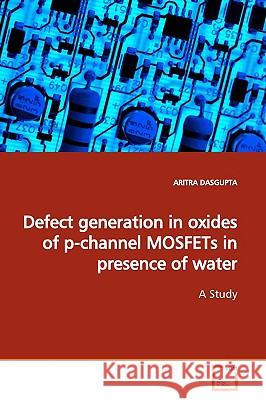Defect generation in oxides of p-channel MOSFETs in presence of water » książka
Defect generation in oxides of p-channel MOSFETs in presence of water
ISBN-13: 9783639156027 / Angielski / Miękka / 2009 / 60 str.
Defect generation in oxides of p-channel MOSFETs in presence of water
ISBN-13: 9783639156027 / Angielski / Miękka / 2009 / 60 str.
(netto: 209,23 VAT: 5%)
Najniższa cena z 30 dni: 219,69 zł
ok. 10-14 dni roboczych
Bez gwarancji dostawy przed świętami
Darmowa dostawa!
Hydrogenous species play a key role in radiationinduced charge buildup in metal oxide semiconductorfield effect transistors (MOSFETs). The amount ofhydrogen present in ambient gases used during devicefabrication can be correlated to the concentration ofradiation-induced interface traps post processing.The effects of water on defect formation in MOSFETsbefore and after radiation exposure have beenstudied. Greatly enhanced post-irradiation defectgeneration was observed in the gate oxides ofp-channel MOS transistors that were exposed to water.Low frequency (1/f) noise measurements also showedenhanced noise power spectral densities in thep-channel transistors consistent with the enhancedpost-irradiation increase in defect density.Phosphorus and boron dopant atoms are present in thefield oxides of the n-channel and p-channeltransistors because of source and drain implantsteps. This can lead to enhanced water-induced defectformation in the gate oxides of p-channel transistorscompared to n-channel transistors before and afterirradiation. These results are significant for theperformance of MOS technologies in non-hermeticenvironments.











